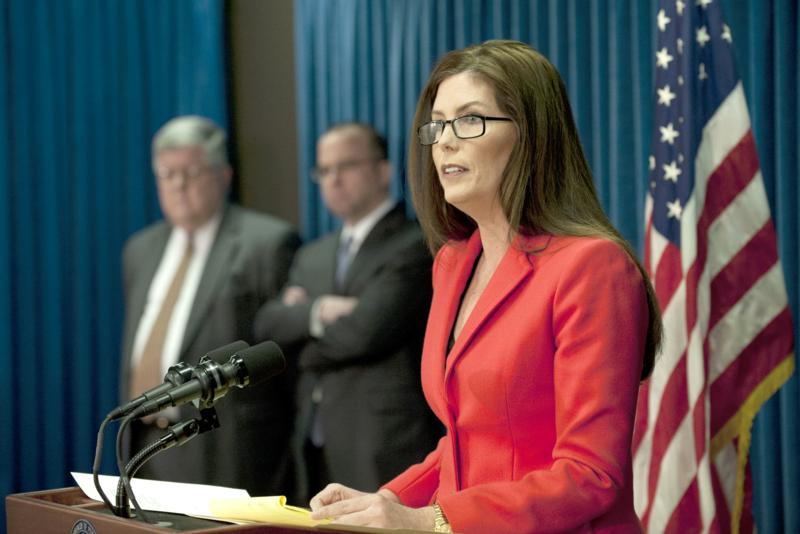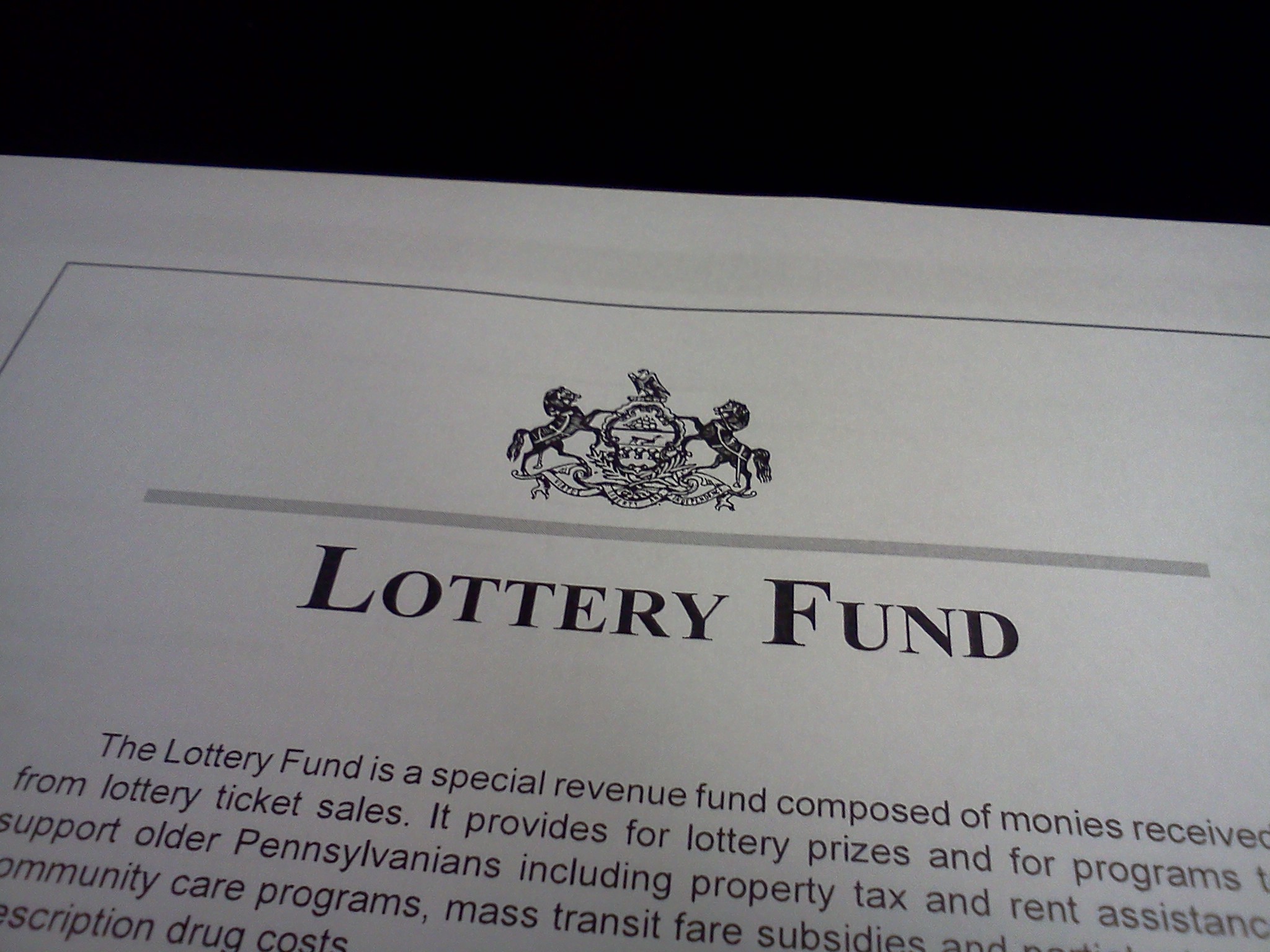Early Friday evening the Corbett administration announced its decision to hire a private sector manager to run the Pennsylvania Lottery. The administration has been exploring the possibility for months, as a way to secure steady revenue growth for the programs that benefit PA’s senior citizens. Ultimately it received one bid, from Camelot Global Services – the same company that runs the National Lottery in England.
The “notice of award” comes just days before the Senate Finance Committee is to convene a public hearing on the controversial issue. Below you will find complete statements being issued by various stakeholders:
The Corbett Administration (Department of Revenue):
Harrisburg –– In the effort to secure critical, long-term funding for older Pennsylvanians, Secretary of Revenue Dan Meuser today announced the next step in the selection process for the the Private Manager of the Pennsylvania Lottery.
The Commonwealth of Pennsylvania has issued a notice of award to Camelot Global Services PA, LLC, which provides for a 20-year Private Management Agreement. A notice of award is not a binding contract.
Under Pennsylvania procurement laws, the issuance of the notice of award allows the Corbett administration the opportunity to disclose contractual and procurement details of the Private Management Agreement at the Senate Finance Committee Hearing scheduled for January 14.
With the issuance of this award, Secretary of Revenue Dan Meuser, Secretary of Aging Brian Duke and Pete Tartline, Executive Deputy Secretary, Governor’s Budget Office will be able to address all relevant contractual procurement questions at the hearing.
The administration will gather information at the hearing and the near future will determine what is in the best interest for Pennsylvania seniors.
Camelot Global Services:
“We are delighted the Commonwealth of Pennsylvania has issued a notice of award for the private management of the Pennsylvania Lottery. We know the state has placed enormous trust in giving us responsibility for its Lottery and we intend to work tirelessly to earn that trust. We are confident in our projections on growing responsibly the Pennsylvania Lottery over the next 20 years and guaranteeing the economic future for seniors programs. We are committed to make major investments in the lottery – in its brand, in its operations and in its people. We fully recognize that at the heart of any successful organization is its people. We intend to retain as many current lottery employees as possible and increase the number of employees in Pennsylvania overall.”
State Senate Democrats:
Harrisburg — January 11, 2012 — Senate Democrats today released statements expressing dismay and disgust at the actions of the Corbett Administration in announcing the notice of award as it relates to the private management agreement, (PMA), for the Pennsylvania Lottery.
“This is extremely disappointing and disturbing,” said Senator Jay Costa (D-Allegheny). “The action taken by the Corbett Administration was done without public input. Today’s decision has the potential to jeopardize senior programs and put taxpayers on the hook.”
“This has been a bizarre process that violates the public trust,” Costa continued. “There were no hearings, little opportunity to understand the proposed PMA and no scrutiny. The process was violated and the citizens of Pennsylvania were abused by this arbitrary action.”
Senator John Blake (D- Lackawanna), Democratic Chairman of the Senate Finance Committee pointed out the proposal needs legislative authorization and it demands legislative scrutiny.
“The process was culminated when the General Assembly was not in session and there was little public examination of the proposal,” Blake said. “This process wasn’t transparent — it was opaque. No one could see the end result except a small group of the governor’s inner circle.”
Expressing extreme disappointment on behalf of his constituents, Senator Rob Teplitz (D-Dauphin) said the use of a secretive process would lead to the privatization of a significant state asset and is unprecedented. “This is not a proper way to alter generations of public policy and violated the public trust.”
“On a personal level, many of the affected employees are my constituents and have been treated with complete disregard,” Teplitz said. “The arrogance of this administration in the way this was handled is deplorable.”
“I am extremely disappointed in this administration’s decision to jam this deal through at the last minute prior to a key Senate Finance Committee hearing,” said Senator Matt Smith (D-Allegheny). “This shows a disturbing lack of transparency by the Corbett administration and hinders a meaningful dialogue regarding this multi-billion dollar deal. The Camelot plan certainly deserves a proper examination by the General Assembly and Pennsylvania taxpayers are entitled to further information.”
Senator John Wozniak (D-Cambria) echoed the sentiments of his colleagues related to the PMA. “There are many questions related to how this privatization effort impacts seniors and property tax relief related to gaming. The concerns of taxpayers should have been taken into consideration and questions answered before the governor took this action.”
AFSCME Council 13 (State Workers Union):
HARRISBURG – (JANUARY 11, 2013) AFSCME Council 13 will continue to oppose Gov. Tom Corbett’s plan
to give away as much as $1.5 billion in PA lottery funds that could fund vital senior programs to Camelot
Global Services, the U.K.?based corporation that wants to take over the lottery.
Gov. Corbett signed a contract tonight after months of secretive negotiations with Camelot.
“It’s just incredible that the governor would ignore the General Assembly and the thousands of
Pennsylvanians we’ve heard from who understand that this is a bad deal for our seniors,” said Dave
Fillman, Executive Director of AFSCME Council 13.
“This is a midnight raid. The governor rushed this deal through when the legislature was not in session.
He refuses to provide access to any of the documents that they’ve traded back and forth with Camelot
and he has refused to hold a single public hearing on this deal,” Fillman added.
AFSCME has provided a counter?proposal to the administration to modernize and expand the lottery
that would provide $1.5 billion more for senior programs than Camelot would under its flawed plan.
“Apparently, the governor wants to privatize something – anything – no matter the costs to
Pennsylvanians,” Fillman said. “Our lottery is one of the best in the nation and this administration just
two weeks ago was congratulating our team for the great work they’re doing. Now, they’re telling
people thanks, but we’re terminating your job.”
AFSCME and seven Democratic lawmakers filed a lawsuit in Commonwealth Court to stop the governor
from privatizing management of the lottery. Seniors who benefit from lottery programs and several
lottery employees also joined that litigation.
In addition, AFSCME is working with lawmakers in both parties to oppose Camelot’s proposal to change
current state law to drastically reduce the Commonwealth’s annual commitment to lottery?funded
programs. Current state law mandates that the state invest 27 percent of the Lottery Fund in senior
programs annually. That minimum returns to its standard level of 30 percent on July 1, 2015.
But Camelot is betting that lawmakers will change that law and maintain the 27 percent floor for
the next 20 years, through 2033. This change alone would amount to a $1.244 billion loss to seniors if
the same sales revenues are achieved without Camelot’s profit taking.
“For 42 years, the lottery has always gone well above the minimum because that’s the right thing to do,”
Fillman said. “But under this deal, every $1 above that minimum goes to Camelot’s bottom line.”










